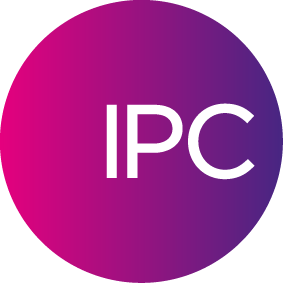NEW YORK – December 1, 2016 – IPC, a leading global provider of secure, compliant communications and networking solutions for the financial markets community, today announced that the company will host a free webinar at 11 a.m. EST on December 6, 2016, with TABB Group, the international research and consulting firm focused exclusively on capital markets, to discuss the implications of implementing a zero tolerance compliance culture.
The webinar will cover why now, more than ever, creating a culture of compliance is important to ensure financial firms continue to grow and be profitable. Some firms have instituted zero tolerance approaches to breaches in company policy or compliance rules. Furthermore, the rise of social media and so many other forms of communication, like WhatsApp, Facebook messenger, iMessage, Twitter and other “zero evidence” solutions could potentially result in regulated employees using these systems to communicate.
Speakers Robert Powell, Director of Compliance, IPC, and Dayle Scher, Senior Analyst, TABB Group, will discuss the importance of zero tolerance culture, the risks and pitfalls of social media and the many forms of “zero evidence” communications that exist today, and also share examples of the penalties companies are currently facing for non-compliance with regulatory requirements.
When: Tuesday, December 6, 2016 11:00 a.m. EST (5:00 p.m. CET)
Where: Online
Tweet this Webinar: @IPC_Systems_Inc and @TABBGroup host webinar on zero tolerance #compliance culture and “zero evidence” #communications
About TABB Group
With offices in New York and London, TABB Group is the international research and consulting firm focused exclusively on capital markets, based on the interview-based, “first-person knowledge” research methodology developed by Larry Tabb. For more information, visit www.tabbgroup.com.
About IPC
IPC is a technology and service leader that powers financial markets globally. We help clients anticipate change and solve problems, setting the standard with industry expertise, exceptional service and comprehensive technology. With customers first and always, we collaborate with each to understand their individual needs to help make them secure, productive and compliant within our connected community. Through service excellence, long-developed expertise and a focus on innovation and community, we provide agile and efficient ways for our customers to accelerate their ability to adapt to the ever–changing requirements for advanced networks, compliance and collaboration with all counterparties across the financial markets. www.ipc.com
Certain statements contained in this press release may be forward-looking statements. These statements may be identified by the use of forward-looking terminology such as “anticipate,” “believe,” “continue,” “could,” “estimate,” “expect,” “intend,” “may,” “might,” “plan,” “potential,” “predict,” “should” or “will” or similar terminology. Any forward-looking statements are based on current expectations, assumptions, estimates and projections. Such forward looking statements involve known and unknown risks and uncertainties, many of which are beyond our control. Actual results may differ materially from any future results expressed or implied by these forward-looking statements.
# # #


